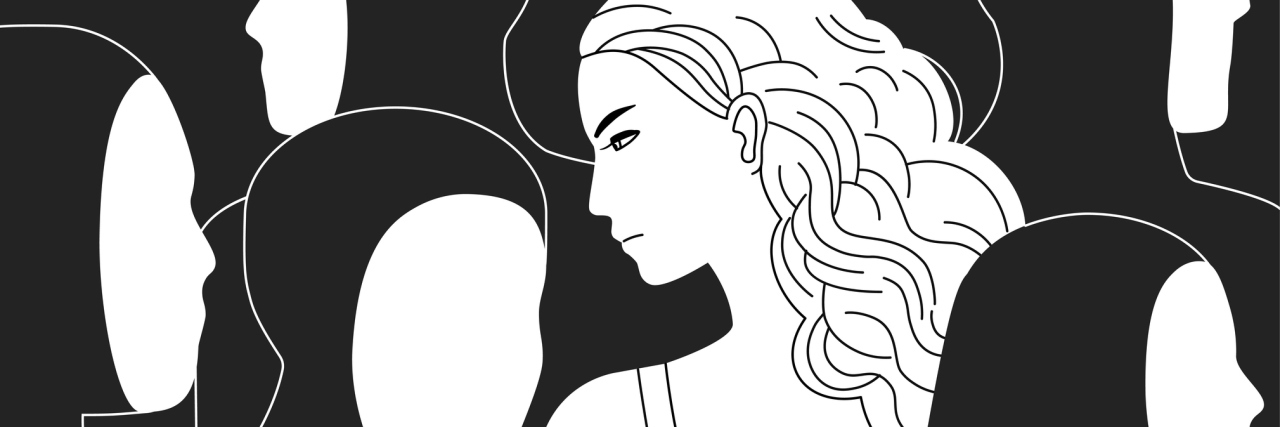I have been living with chronic fatigue syndrome for several years now. This illness can get pretty isolating. It’s pretty hard to communicate what it feels like without people thinking I’m complaining about something trivial. See, the debilitating pain and brain fog aren’t very obvious to the unknowing observer. They might think of it as equivalent to the tiredness they feel after a long day of work or a bad night’s sleep. The overwhelming need to sleep, sometimes for 12+ hours per day, is met with either jealousy (“I wish I could sleep for that long!”) or insightful advice (“maybe you’re just tired because you overslept”).
Chronic fatigue is a mystery condition. It’s only diagnosed through a process of elimination, and they don’t really know what it is or how to treat it. It could be the result of gut bacteria, some sort of post-viral fatigue (hence the common association with Epstein-Barr Virus, a.k.a. glandular fever), abnormal brainwaves during sleep or maybe just an extreme symptom of some other condition (e.g. depression). Sadly, after the lengthy process of determining that nothing appears to be wrong with you, there’s not a whole lot anyone can do to help you. There are currently no “gold-standard” treatments. The condition itself has a pretty low remission rate. The best remaining option is to learn to live around it.
Chronic fatigue “flares” can trap you in a vicious cycle. Debilitating fatigue, unsurprisingly, can be a strong trigger for depression. Depression, in turn, can worsen fatigue. It feels like gravity has doubled your weight. You constantly feel like you’re somewhere between awake and asleep, and no amount of sleep can make it better. It’s trembling extremities, limbs that feel like jelly and aching all over. On a larger scale, it’s missed opportunities to go out and enjoy life, while simultaneously being made to feel guilty or overdramatic about something you can’t control.
The difficulty with invisible illnesses is that your ability to appear to be “well” is a reason to be invalidated by the people around you. This can start to make you question yourself as to whether something is really wrong. Self-care becomes infinitely harder when you don’t believe you deserve it, and herein lies the root of an increasingly worsening mental health epidemic that we now face. We are made to feel guilty for putting ourselves first, and along the way we have developed some strange idea that there should be a quick fix.
There is no “one size fits all” approach to any struggle. As humans, we vary in the most wonderful and interesting ways, but we also have remarkably different needs. It’s easy to come up with a logical solution or to dismiss something we cannot see if we don’t take the time to walk in someone’s shoes. Realistically, in fact, there is often no way to completely understand someone else’s experience if we haven’t experienced it ourselves. Judgment is all too easy when we don’t take the time to truly listen and empathize with those around us.
We live in a complex world, and with that comes complex experiences. Everyone, from all walks of life, has their own unique story and their own unique set of struggles. Sometimes, these struggles have a large and long-lasting impact. So what can we do?
Firstly, never assume that you know better than the person who is in need. You may possess helpful insights and practical answers when they are feeling lost and scared, but you can’t make assumptions about exactly how they feel and what it’s like living day-to-day. The best approach is to simply ask, and most importantly, to listen. Be gentle with the people around you. A happy, confident face doesn’t always mean everything is fine. We can’t always know and we can’t always help, but we can always ease the burden by helping others to feel unconditionally loved and respected. Lastly, forgive. Forgive yourself for whatever you may be struggling with, forgive those around you for whatever they may be struggling with, and forgive people for not always getting it right.
It’s OK to struggle and it’s OK to do whatever you need to do to survive.
Getty Image by Good_Studio

